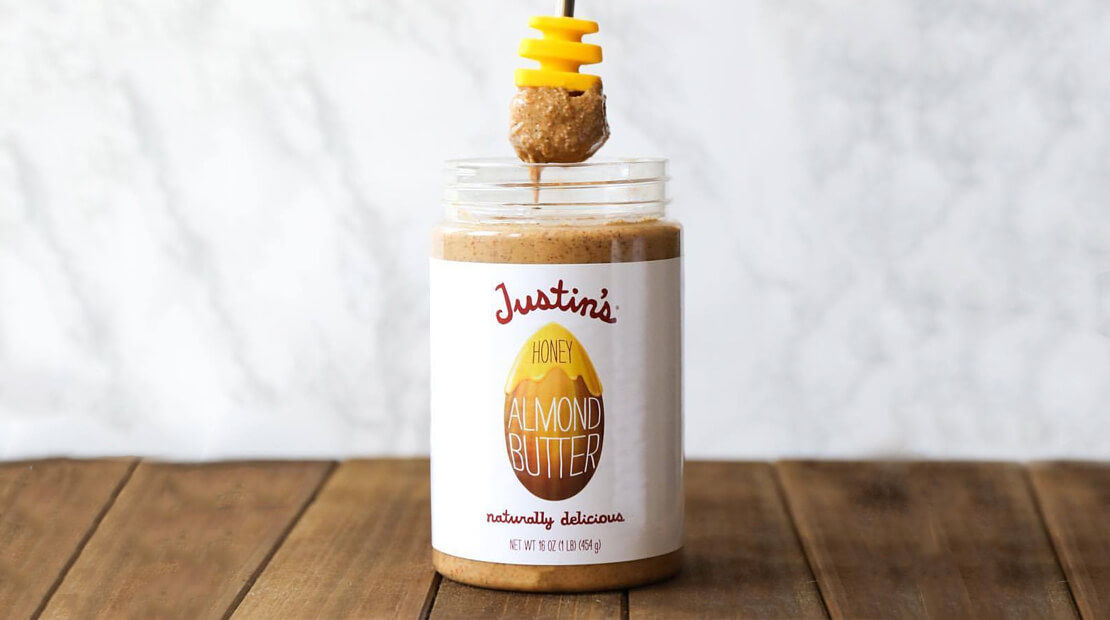Justin’s, a category leader known for crafting delicious, real food products that contribute to the world in a positive and meaningful way, today launched a new campaign aimed at educating people about the important role pollinators play in our food system. In partnership with the National Honey Board, Justin’s invites fans to visit JustinsNutsAboutBees.com to learn how pollinators help ensure foods like almonds and other ingredients in JUSTIN’S® products are available for years to come, along with simple ways we can all help support the bees. By taking a digital pledge to plant for pollinators during June’s National Pollinators Month, all participants will be automatically entered in a Justin’s giveaway for a chance to win buzzworthy prizes valued at more than $3,500.
To further demonstrate its commitment to pollinators, Justin’s is also donating $33,000 to Project Apis m.– representing the approximate 33% of the food we consume made possible by pollinators. Project Apis m. will direct the donation for funding research aimed at improving honey bee health and vitality. In addition to launching JustinsNutsAboutBees.com, Justin’s will actively work to build awareness of pollinators in June through compelling video and social media content – showcasing how pollinators play a big part in putting food on our plates.
“One out of every three bites of food we eat depends on pollinators, like bees,1 as they pollinate a wide range of plants we know and love, including crops like almonds.2 That’s why protecting our bee friends and all pollinators is critical,” said Penny Andino, vice president of marketing at Justin’s. “We’re committed to pollinator education and conservation with our partners at the National Honey Board. We hope that creating more buzz about pollinators’ role in our food system and sharing pollinator-friendly garden tips will support more collective action for us all to do our part to help protect honey bees.”
Bees need us and we need bees
In addition to gathering nectar to produce honey, honey bees perform a vital second function – pollination, making them a critical component of today’s agricultural market. In fact, about one-third of the human diet is derived from insect-pollinated plants, and honey bees are responsible for 80 percent of this pollination.3 Just like us, it is important that pollinators have access to a varied diet to thrive, including plants, pollen, and nectar.4 Due to a combination of climate change, pesticides, and habitat loss,5 honey bees are dying off at a rate of 39% per year.6 With pollinators playing an important role in products like JUSTIN’S® – almonds require pollination – Justin’s is committed to collaborating with national, state and local organizations that work to protect pollinators through habitat conservation and expansion, sustainable agriculture, research and education, including the National Honey Board, Xerces Society, Growing Gardens, and the People and Pollinators Action Network.
How can we all help the pollinators?
As a long-standing partner with the National Honey Board and its Honey Saves Hives campaign – which educates consumers on the various ways they can help protect and preserve honey bee populations – Justin’s is encouraging fans to transform their gardens to better welcome pollinators this spring and summer. At JustinsNutsAboutBees.com people can discover what types of pollinator-friendly plants to grow for eight different regions of the U.S. And as pals of pollinators take the planting pledge, they can enter Justin’s giveaway where one randomly-selected, lucky winner will receive a grand prize package valued at more than $3,500 consisting of a $3,000 gift card to a local garden center; a 30-minute consultation with the National Honey Board on how to make a garden pollinator-friendly; a variety of JUSTIN’S® products made possible in part by pollinators; and a National Honey Board care package to include a honey and bee-inspired culinary entertaining set valued at $500.
“Honey bees, beekeepers, and the honey industry are direct contributors to the success of American agriculture. Today, the honey industry faces many challenges, such as hive loss, drought, colony collapse, and shrinking forage areas,” said Margaret Lombard, chief executive officer, National Honey Board. “We’re hopeful our collective actions during National Pollinators Month will help raise awareness of the importance of honey bees, and show how taking simple actions, like planting pollinator-friendly plants or purchasing products made with honey, can be impactful.”
Here are five ways we can help the honey bees courtesy of the National Honey Board:7
- Plant bee-friendly flowers and flowering herbs in your garden and yard.
- Reduce the use of pesticides – you may not like weeds, but bees love them! Reduce the use of pesticides to treat your lawn or garden while flowers are in bloom by picking the weeds instead of spraying them.
- Bees are thirsty. Put a shallow basin of fresh water with marbles or rocks in it for the bees to land on outside your home.
- Donate to an organization dedicated to helping protect and promote honey bees and other pollinators.
- Support beekeepers by purchasing honey and selecting made-with-honey products, like JUSTIN’S® Honey Almond Butter and JUSTIN’S® Honey Peanut Butter.
1 Source: USDA.gov, May 2023
2 Source: Honey Saves Hives, 2023
3 Source: National Honey Board, May 2023
4 Source: National Honey Board, May 2023
5 Source: Pollinator Partnership May 2023
6 Source: Bee Informed, July 2022
7 Source: National Honey Board, 2023
